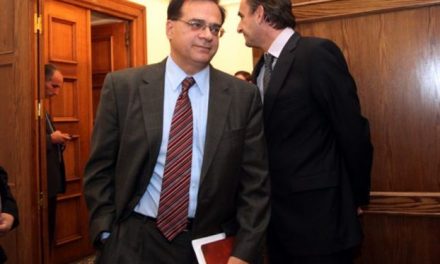By COSTAS PARIS And ALKMAN GRANITSAS
ATHENS—Greece’s international creditors look set to take a tough line with Athens as they begin meetings Thursday aimed at assessing the country’s progress—or lack thereof—in implementing terms of its latest multibillion-euro bailout. A delegation of international inspectors from the European Commission, the International Monetary Fund and the European Central Bank–known as the troika–is expected to push for new measures to make up for budget shortfalls that have arisen as the country has drifted through two wrenching election campaigns, officials close to the talks said. That could set them on a collision course with Greece’s newly elected government, which promised to ease the cutbacks that have plunged the economy into a deep recessionary spiral.
When asked by broadcaster CNBC Tuesday whether she would be willing to review terms of Greece’s program, Ms. Lagarde said she was “not in the negotiation or renegotiation mood at all.”
As such, the troika is expected to detail delays and shortcomings in Greece’s already sputtering overhaul program that has been thrown even further off track by two successive elections in May and June that pitched the country into a deep political crisis and policy paralysis.
The list of unfulfilled promises is a long one: To date, Greece has failed to close superfluous state agencies, privatize state assets, lay off public-sector workers, recapitalize its banks, overhaul its tax code and identify €11.5 billion ($14.4 billion) worth of further spending cuts for the next two years, among other things.
Signs that tax collection has slipped—as Greece’s economy plunges even deeper into recession than forecast—mean that Greece looks likely to miss its deficit targets yet again this year, for the third time running. As a result, the troika may demand some €2 billion worth of additional spending cuts, over and above those already taken for 2012.
“Greece has not delivered what it has promised,” said an official familiar with the troika’s position. “They keep complaining that the program is wrong and can’t be implemented, while other countries with similar programs deliver and are making clear progress.”
Greece’s repeated requests for better terms, made while refusing to adopt what has already been agreed, sends negative signals to the creditors, he added.
“There is bailout fatigue for Greece among many in the euro zone,” the official said.
Greek officials complain of a cash crunch. The government’s cash reserves—even taking into account a recent €1 billion dollop of aid that was paid to Athens this week—are enough to cover operating expenses only until late July. Another aid disbursement from the country’s €173 billion bailout wouldn’t come until late August at the earliest, after the troika has completed its talks with the government.
Without that aid, Greece will run out of money and could be forced to suspend basic services, such as its hospitals and schools, although the government is hoping that an infusion of tax receipts from personal income-tax filers—now coming due—will help it clear the hump. And in the past, the government has managed to stretch its cash reserves by delaying payments to contractors, suppliers and even, in some cases, public servants. The government also has to redeem some €4 billion in bonds held by the ECB in August.
“In the best of cases, money will be disbursed sometime in late August,” the official said, noting that the review process is a cumbersome one, which has to satisfy both the IMF’s and the euro group’s internal procedures.
In an effort to show it means business, Greece’s three-party coalition government, elected June 17, is expected Friday to reveal its own proposals aimed at convincing the country’s creditors that it has an alternative plan to kick-start the economy—and still meet Greece’s reform and deficit targets.
Prime Minister Antonis Samaras, head of the conservative New Democracy government that leads the coalition government, will detail in a speech to parliament plans to cut spending, lower taxes and unblock the country’s frozen privatization program.
The measures Mr. Samaras is expected to disclose include tightening hiring rules for civil servants (taking on just one new public servant for every 10 that retire, compared with a one-for-five rule now), restructuring Greece’s deficit-ridden pension funds, public hospitals and local government organizations. Mr. Samaras is also expected to disclose a drastic overhaul of Greece’s debt-laden national railroad organization.
The new government, officials said, wants to show that it is taking steps first, before formally asking its euro-zone partners and the IMF to loosen terms of the current austerity program. But some warn privately that, if the troika takes too hard a line, it could destabilize the fragile coalition agreement between the conservatives and its left-of-center partners, the Socialist and Democratic Left parties.
“We don’t know what the position of the troika will be. But if the troika doesn’t show any flexibility, the coalition could fall apart and Greece may be forced to hold new elections,” said one senior government official. “The current government can only do so much. And if the troika demands too much, they will be responsible for the political fallout that follows.”



















